Foundation for Rural & Regional Renewal (FRRR)
Unlike most other youth music programs, CRASHENDO! Bairnsdale is not only about the tunes. Modelled after Venezuela’s National System of Youth and Children’s Orchestras and Choirs El Sistema Global, CRASHENDO! uses music education as a vehicle to help children develop their self-esteem, resilience, and social skills.
To support the purchase of new instruments and to help cover tuition fees, the CRASHENDO! team successfully applied to FRRR’s Strengthening Rural Communities program, receiving a $10,000 grant funded by The William Buckland Foundation (managed by Equity Trustees).
They sent us a detailed plan outlining how they planned to use the funds over the course of two years, and how excited they were to get on with their music classes, events, and other activities.
What they couldn’t have known, however, was that the years that followed – 2019-2020 – would be some of the most challenging years their community had ever experienced.
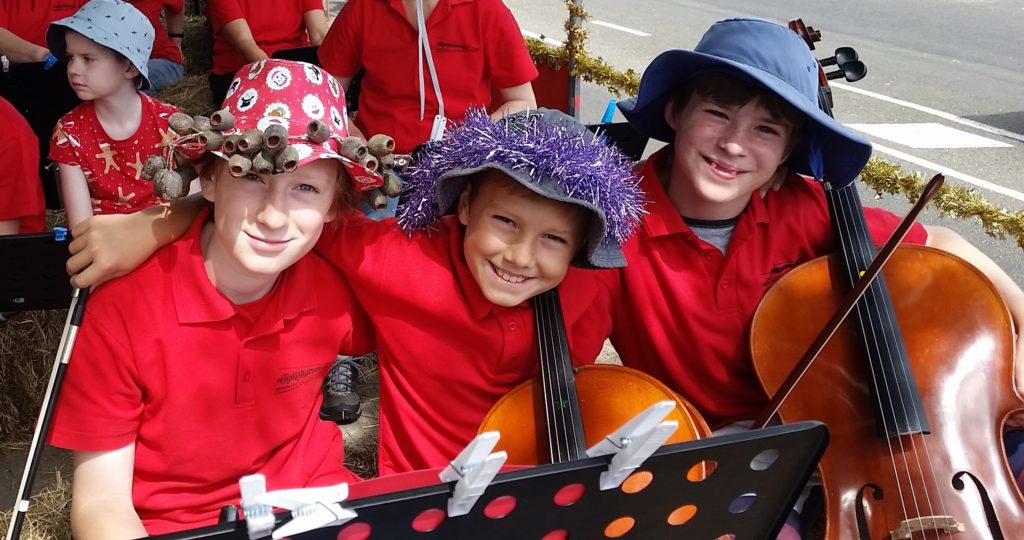
The CRASHENDO! program, which supports around 120 children in Bairnsdale and surrounds, had a great start to the year in 2019, with in-schools tuition, pre-orchestral, orchestra and early years programs in full swing. They also hosted several special events such as the Latrobe Orchestra Workshop and the Christmas Street Parade, both of which brought much joy to the community.
But as Christmas drew closer, so did the devastating bushfires that were already tearing through parts of NSW and VIC. And when the semester was set to begin again in the new year, the CRASHENDO! students had no school to return to.
The facilities, including all their instruments, were destroyed in the fires. Several families in the community had also lost their homes.
But despite these unimaginable challenges, children and tutors alike demonstrated once again the resilience and fighting community spirit we so often see in rural and regional Australia. The classes were moved to another school, and the children found some relief in returning to something familiar and normal – their music practice.
With support from their wonderful and engaging tutors, and by working together in groups, the children continued to develop both their musical skills and interpersonal skills.
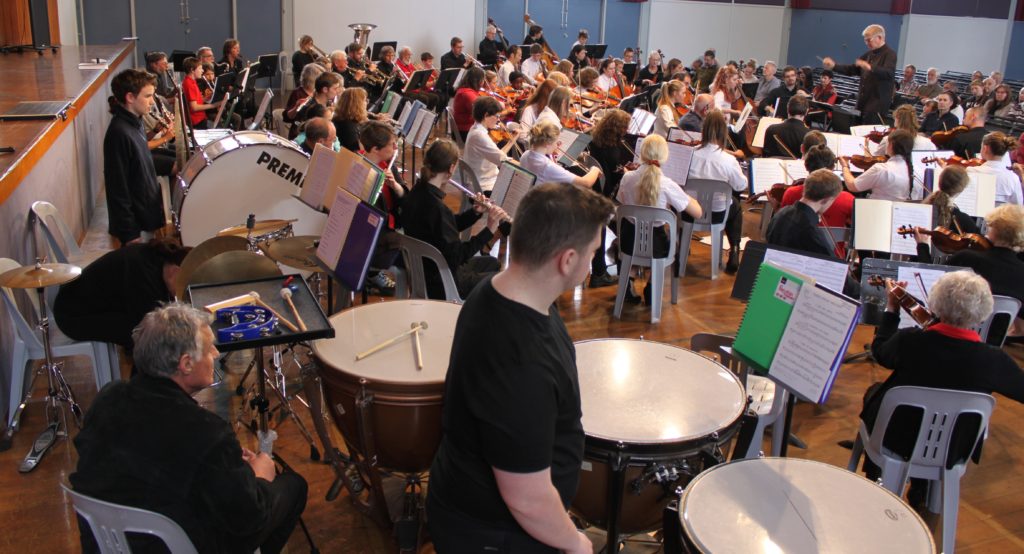
But as we all know too well, 2020 brought with it its own set of challenges.
Soon after the COVID-19 virus reached Australian shores, life for the Bairnsdale community was once again turned upside-down. The community went through two remote learning periods (April – June and July – September), which meant all programs had to be moved online.
During this those unusual times, CRASHENDO! Bairnsdale Youth(ful) Orchestra (CBYO) reduced their sessions, halted expansion plans, and cancelled concerts and community performances.
The future was looking uncertain and bleak. But the CRASHENDO! team – both children and staff – were not about to give up that easily. They already knew the strength they had within them, especially when working together, so they kept their heads high, their Zoom cameras on and their smiles BIG – as they found new and engaging ways of delivering their programs.
Instead of having concerts, they produced videos. Instead of cancelling all Special Events, they scaled down the delivery time and incorporated video compilations. The creativity was flowing and proved to be a great learning experience across the board.
Watch a clip from the adorable video performance here.
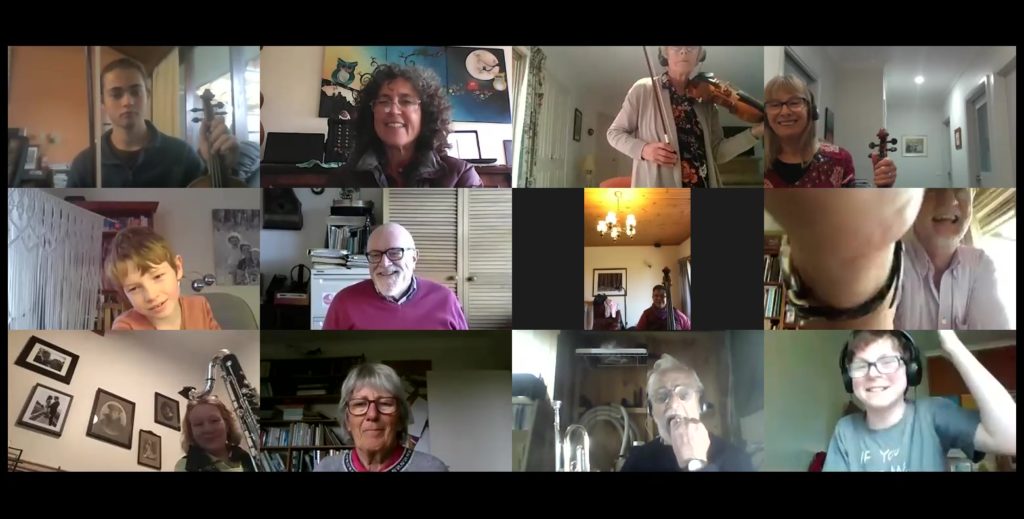
“Although extremely challenging we have been extremely excited about the opportunity to learn new ways of delivering programs, administration and promotion,” Hilary Rigg, Crashendo! Bairnsdale Coordinator said.
She explained that while the number of participants decreased during online delivery, it also allowed them to widen the scope of musical styles and instruments on offer in the program, as well as the geographic area in which participants lived (across wider Gippsland and Melbourne). As tutors could dial in from anywhere, CRASHENDO! also grew their pool of highly skilled tutors, from areas including Melbourne, Geelong and even interstate.
“We have widened networks, forged new or deeper collaborations with other local musical groups and personnel, and kept musicians connected and playing. Hence, most importantly contributing to the well-being of our community!”
Hilary Rigg, Crashendo! Bairnsdale Coordinator
For the residents of Coragulac and its surrounding communities, having access to excellent early childhood education with the right facilities is a top priority for local families.
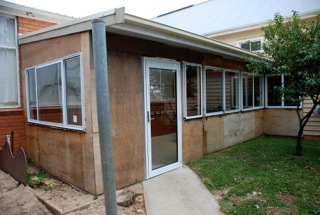
The Coragulac & District Kindergarten has provided care and education for their small community for many years. The facility’s three staff and local volunteers run a three-year-old program for 21 children, and a four-year-old program for 20 children.
Play-based learning helps to develop coordination, motor skills and problem solving skills, while focusing on social skills that are invaluable to kids, such as how to get along with their classmates, how to communicate and follow general rules. It also allows kids to follow their imagination and explore their interests.
The energy and imagination the kids bring to the kindergarten is endless, however their ability to play outside was often met by challenges due to weather, and between the scorching summer heat and chilly winter days, the kids weren’t able to enjoy being outside for very long.
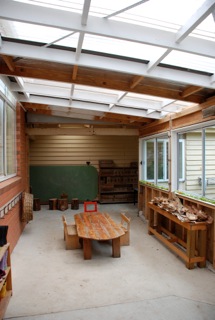
This made some play-based activities very difficult, as the kindergarten lacked a suitable area for things like pot planting and chalk drawing. To continue providing great childcare for local families, the kindergarten needed to upgrade their facilities.
The Kindergarten was awarded $5,000 through the Gardiner Dairy Foundation Community Grants program for their Sheltering Our Children for a Bright and Happy Future project, which built a new verandah for outdoor learning and activities.
The new space allows the kids to enjoy being outside without worrying about the weather, and provides an area for ‘messy’ play-based learning. In addition to the kids who attend the kindergarten during the week, the space is also used after school and on the weekends by families with school-aged children and children with disabilities, as it provides a sheltered, fenced and safe play space.
The need for the diversification of industry has been well known to the Northampton community for many years, given the heavy reliance on agriculture. Drought and unpredictable seasons have seen the withdrawal of many farming families, leaving an ageing population. Northampton has a median age of residents that is significantly older than the national average.
To address this issue, several community groups worked toward a common goal – to leverage the significant tourism potential of the town and bring in more visitors and diversify income. Northampton has a rich heritage, being one of only three towns in Western Australia to have attained the ‘Historic Town’ status. The development of an arts trail is a key feature of the plan, and the Northampton Friends of the Railway sought to add to it with the development and installation of a large 5m x 10m public sculpture.
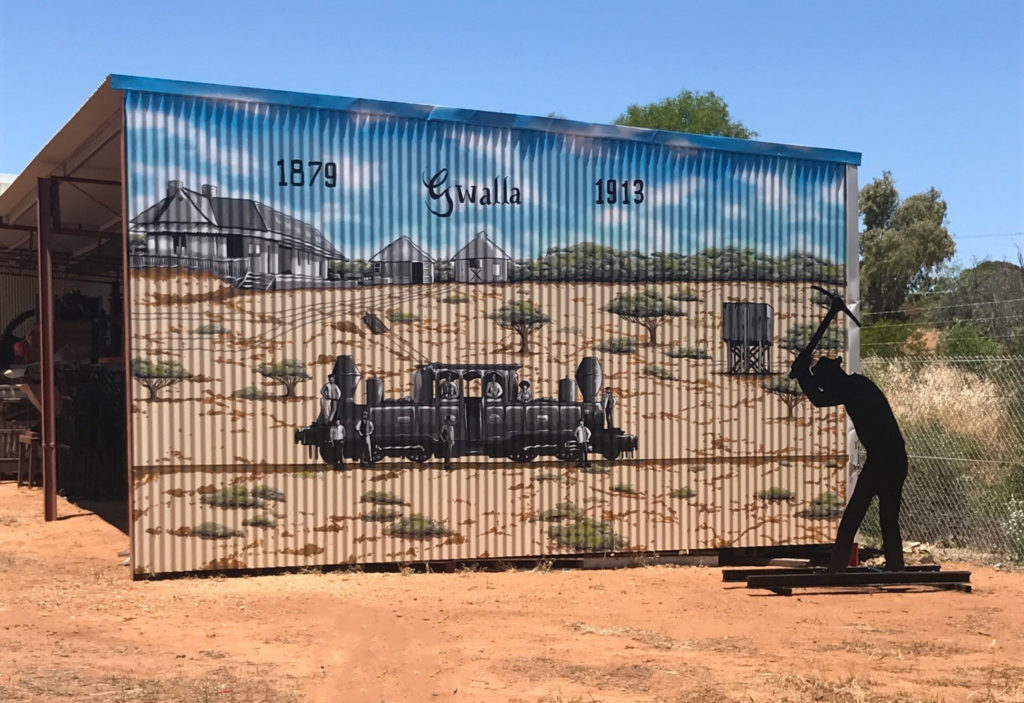
They worked with local artists and steel masons to design and construct the steal art sculpture with the $3,500 Strengthening Rural Communities grant, thanks to funding from the Bertalli Family Foundation, which was specifically used for its final design and painting. The piece depicts the historic Gwalla railway precinct with all of the original buildings of the railway station, some of which no longer exist, and is located exactly on a section of the first Government Railway in Western Australia. It’s an important interpretive piece to showcase the former area, given the significant role that the railway played in the township’s mining and agricultural history.
This project brought together economic, heritage and artistic outcomes, celebrating and promoting a unique local history.
Located 1,000 km from Brisbane in the southwest of Queensland, Eromanga has a big claim to fame. The rural town, hidden deep in the outback of Australia, may only be 119 residents – but the biggest by far is Cooper, a 30 metre long and 6.5 metre high Dinosaur.
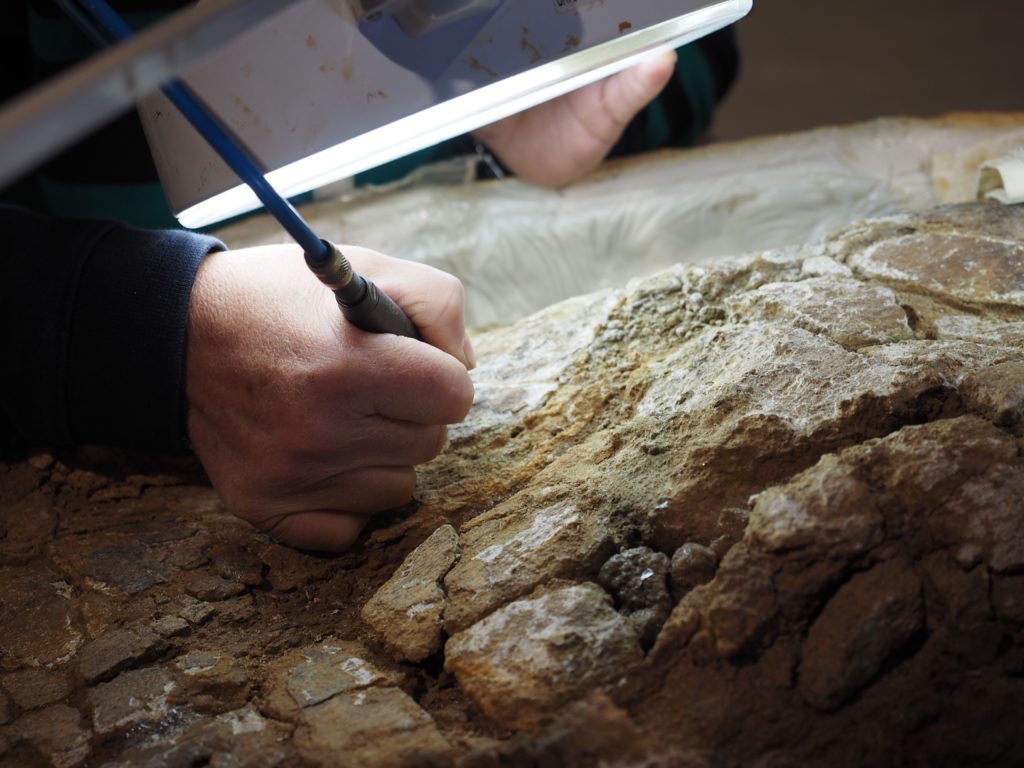
Eromanga is Australia’s furthest town from the ocean, and was drought declared for 13 years out of the 18 years to 2018. The many challenges brought on by a long drought, paired with the limited access to the town, have made increasing tourism a top priority for the local community.
Until recently, tourism around the region was almost non-existent, until the first dinosaur genus was found in 2004. From then, the Outback Gondwana Foundation founded the Eromanga Natural History Museum (ENHM), and since 2008 has been collecting and processing the fossils found in the area for locals, scientists and tourists to view.
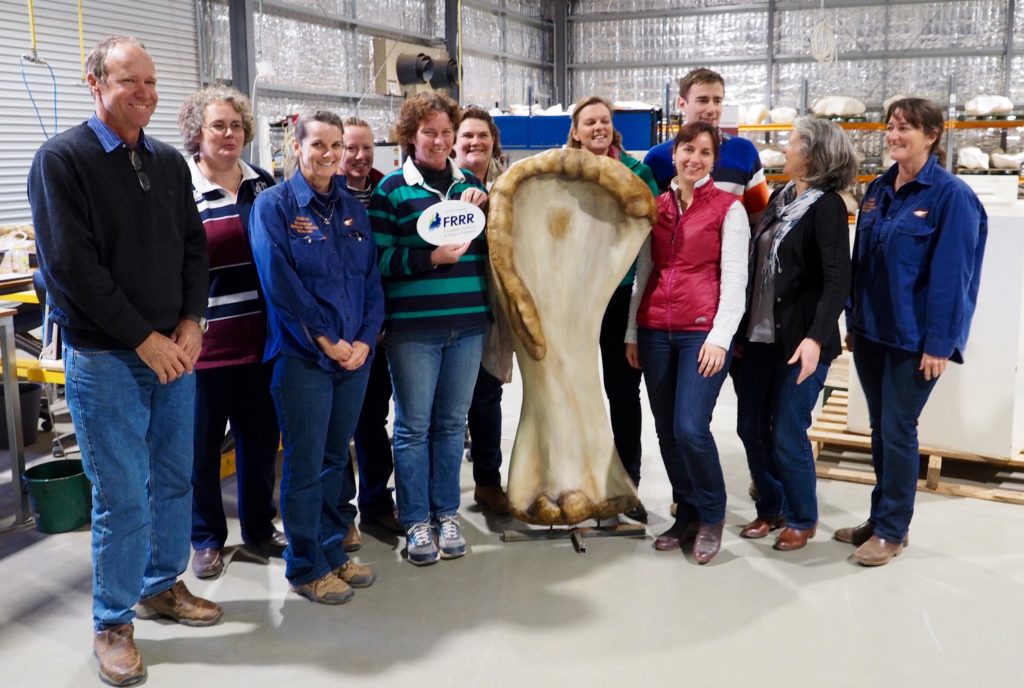
The museum features fossils that have been preserved for more than 95 million years, however being located in a remote area has meant little foot traffic. Visitors faced long travel times to and from the museum, making day trips nearly impossible.
To overcome this obstacle, the Museum opened their own on-site accommodation, bringing more business to the area by allowing visitors to stay longer. Cooper’s Country Lodge offers four-star rooms, and thanks to a recent grant from FRRR, now has new kitchen and laundry facilities for their guests to enjoy.
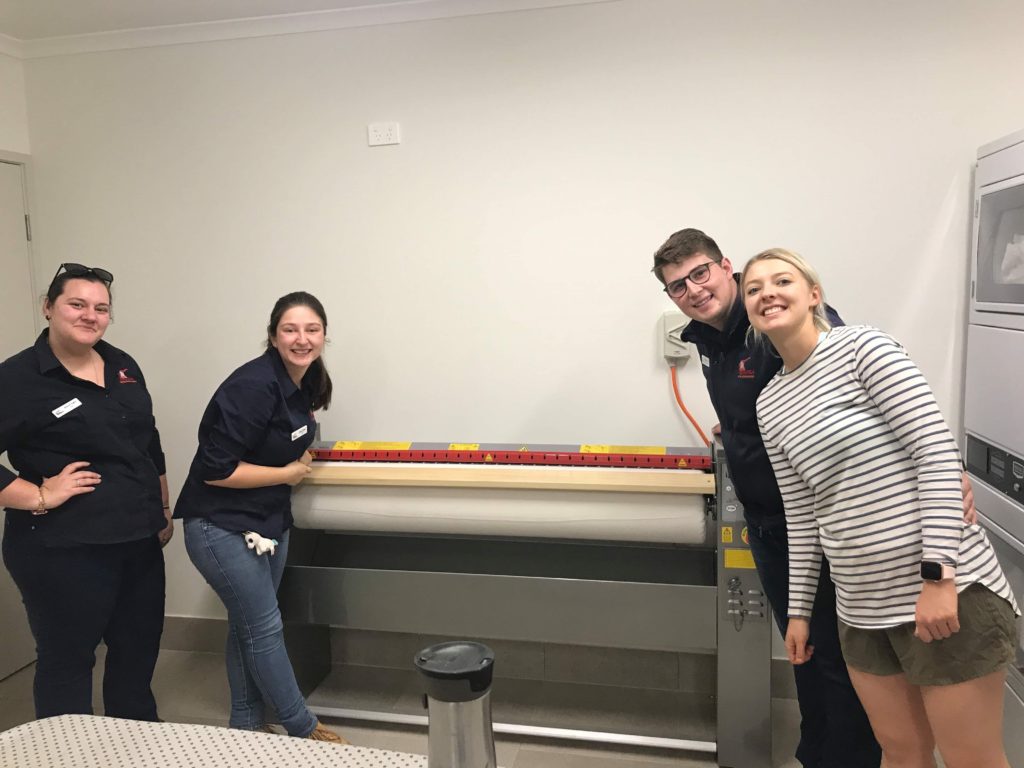
The team at ENHM received a $20,000 grant through FRRR’s Tackling Tough Times Together program, funded by Australia Post, which allowed them to purchase equipment and fit out their onsite kitchen, laundry and support services. There is also a commercial kitchen featuring a microwave, griddle, deep fryer and new cookware, together with dining furniture and outdoor table & chairs.
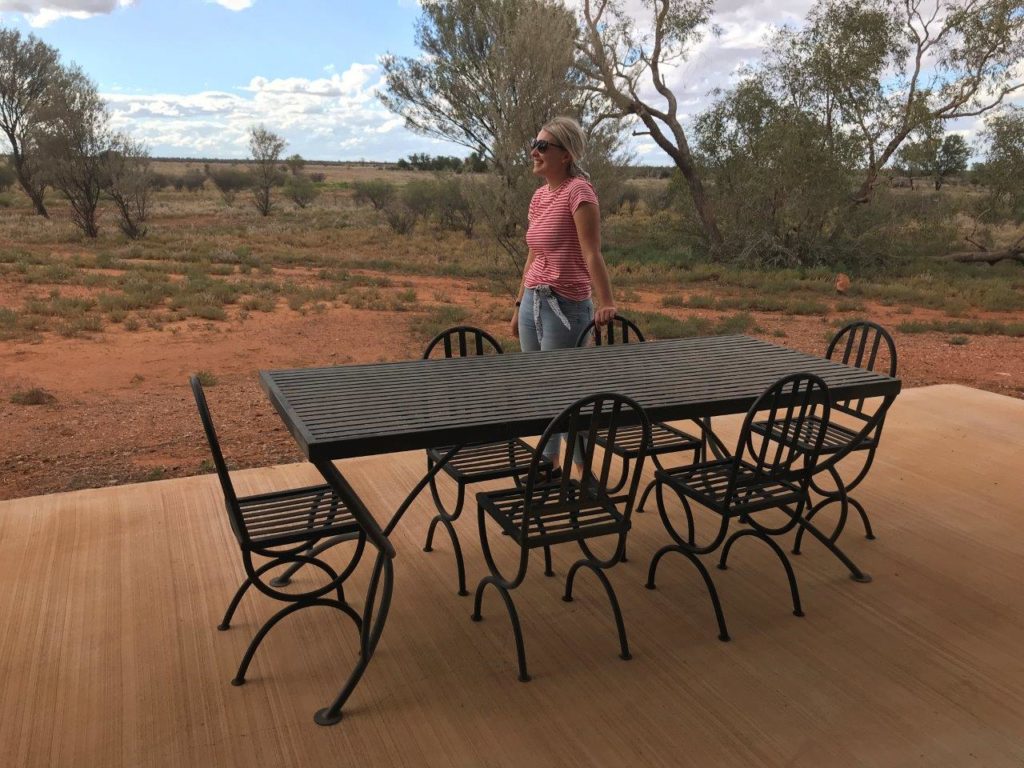
The investment is already paying off. Despite the lockdowns and travel restrictions throughout the COVID-19 pandemic, the popularity of the ENHM and Cooper’s Country Lodge has only increased, as Queenslanders have spent their holidays travelling in their own backyard. In 2020, the ENHM received the TripAdvisor Travellers Choice Award, meaning the Museum is in the top 10% of attractions worldwide.

